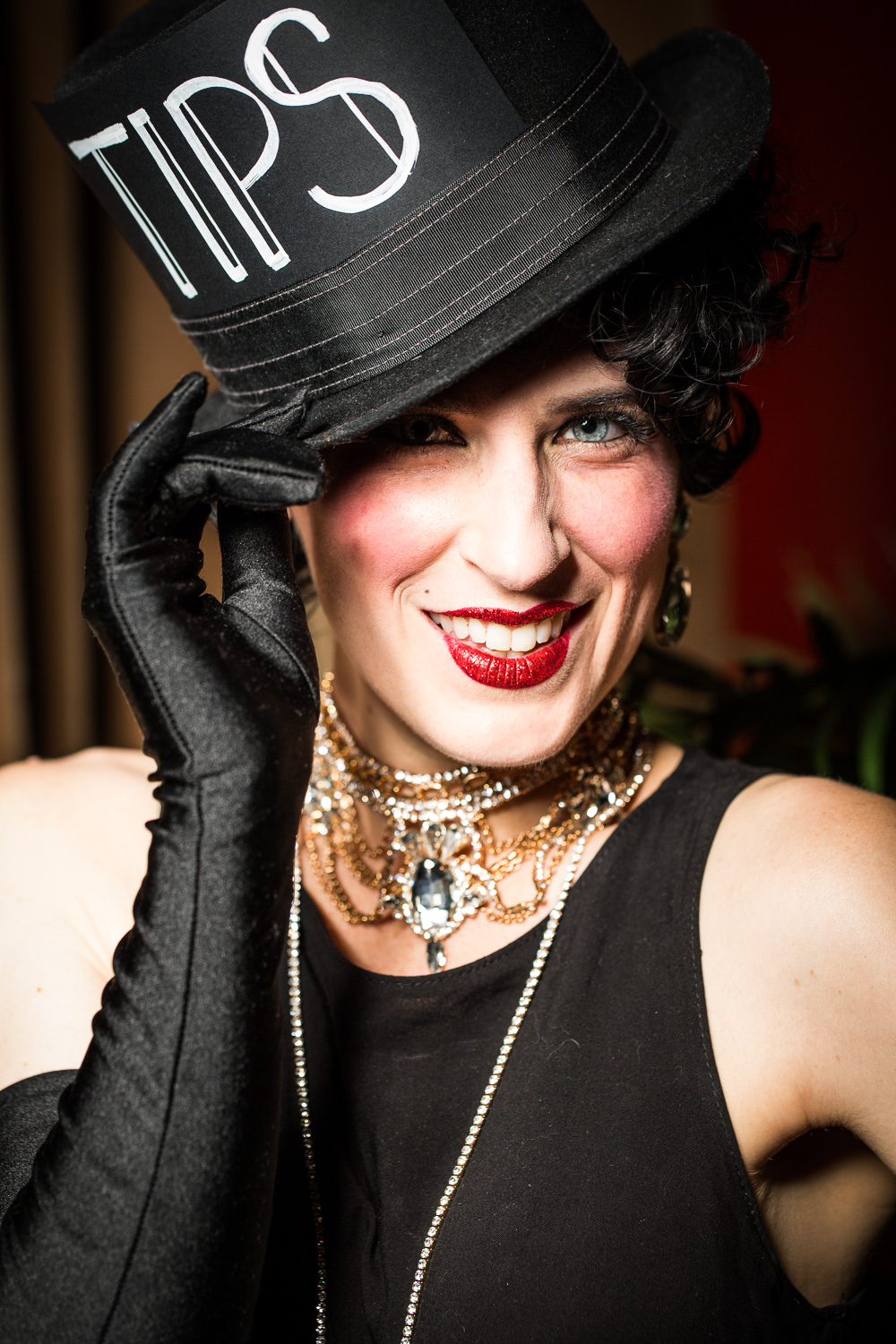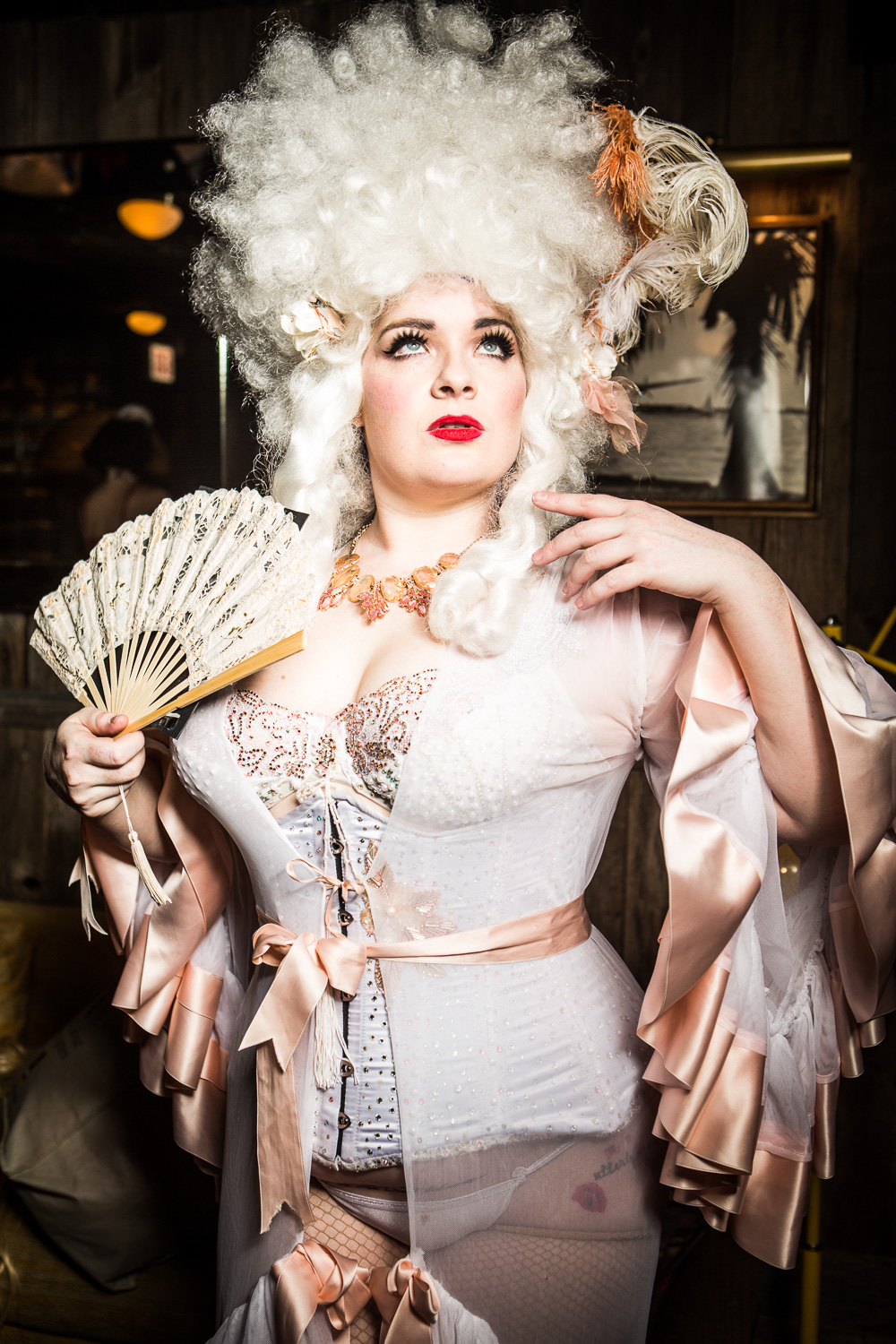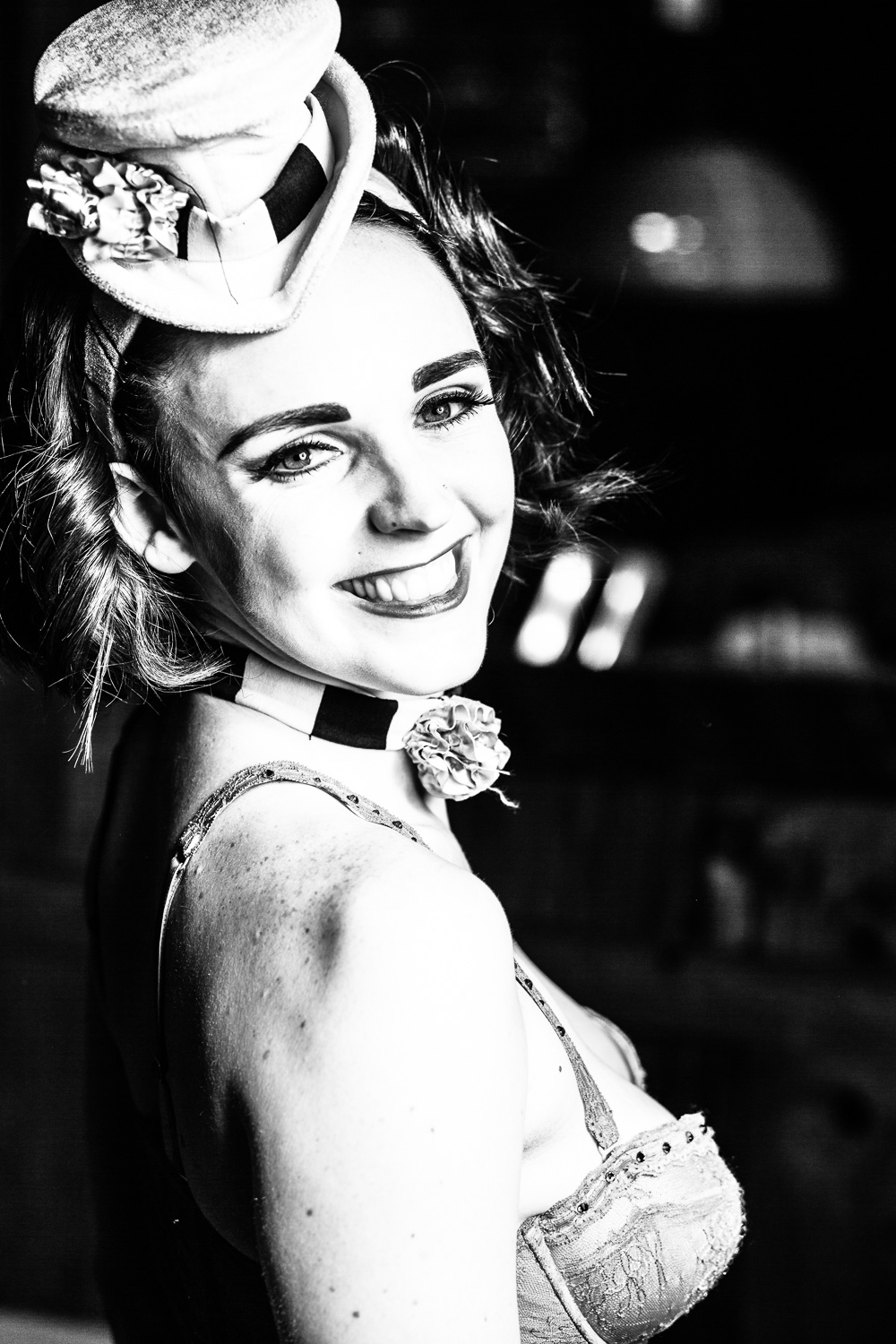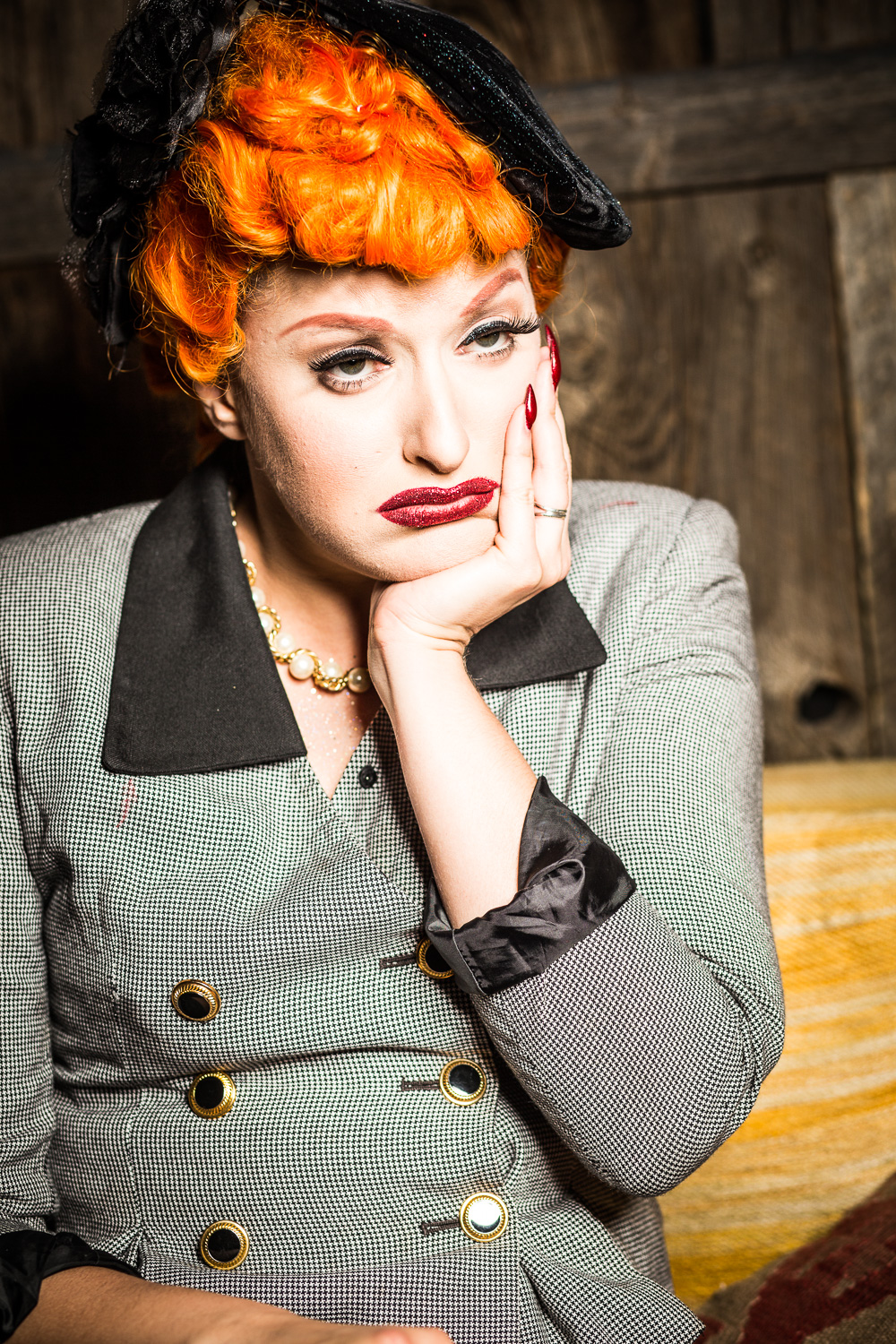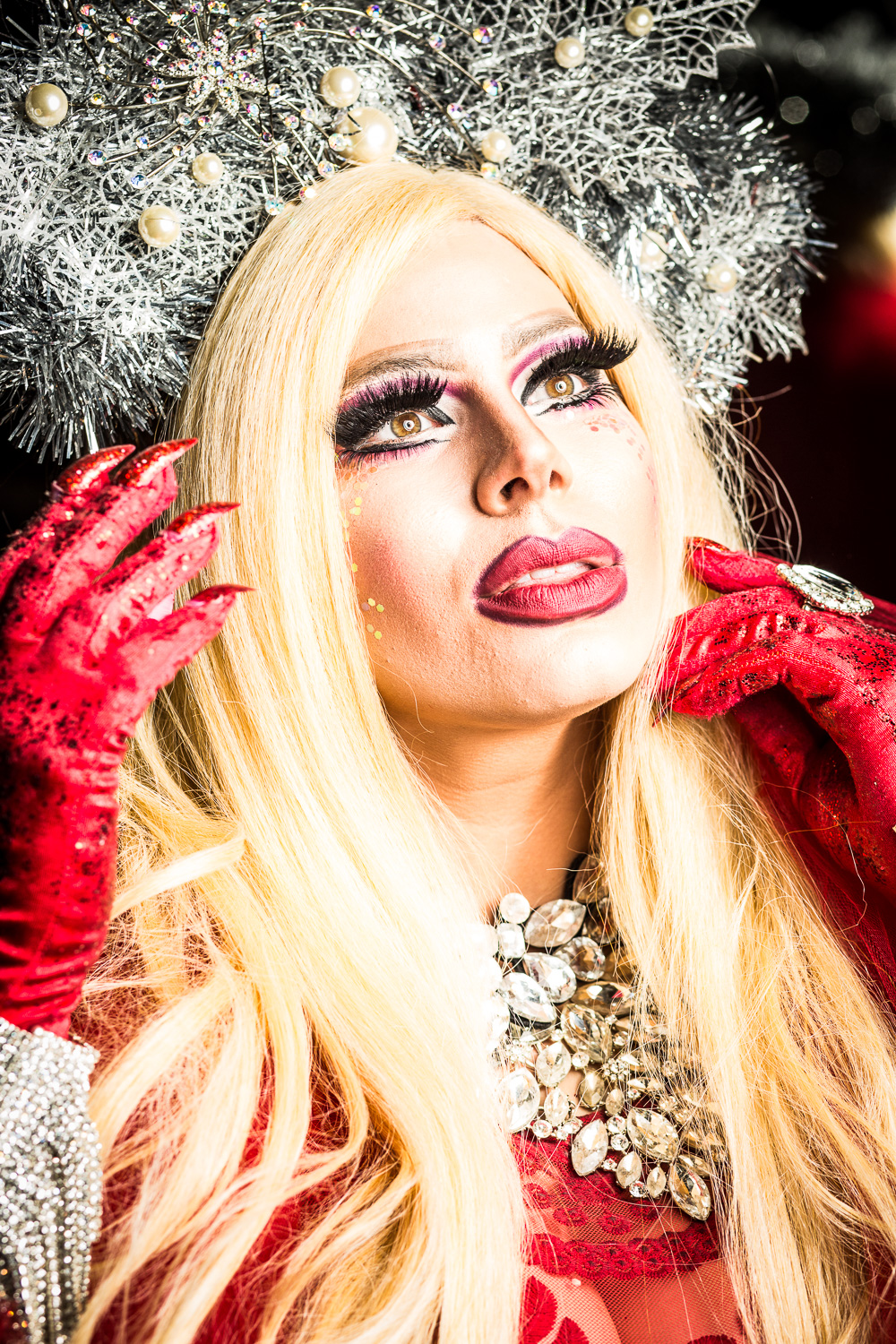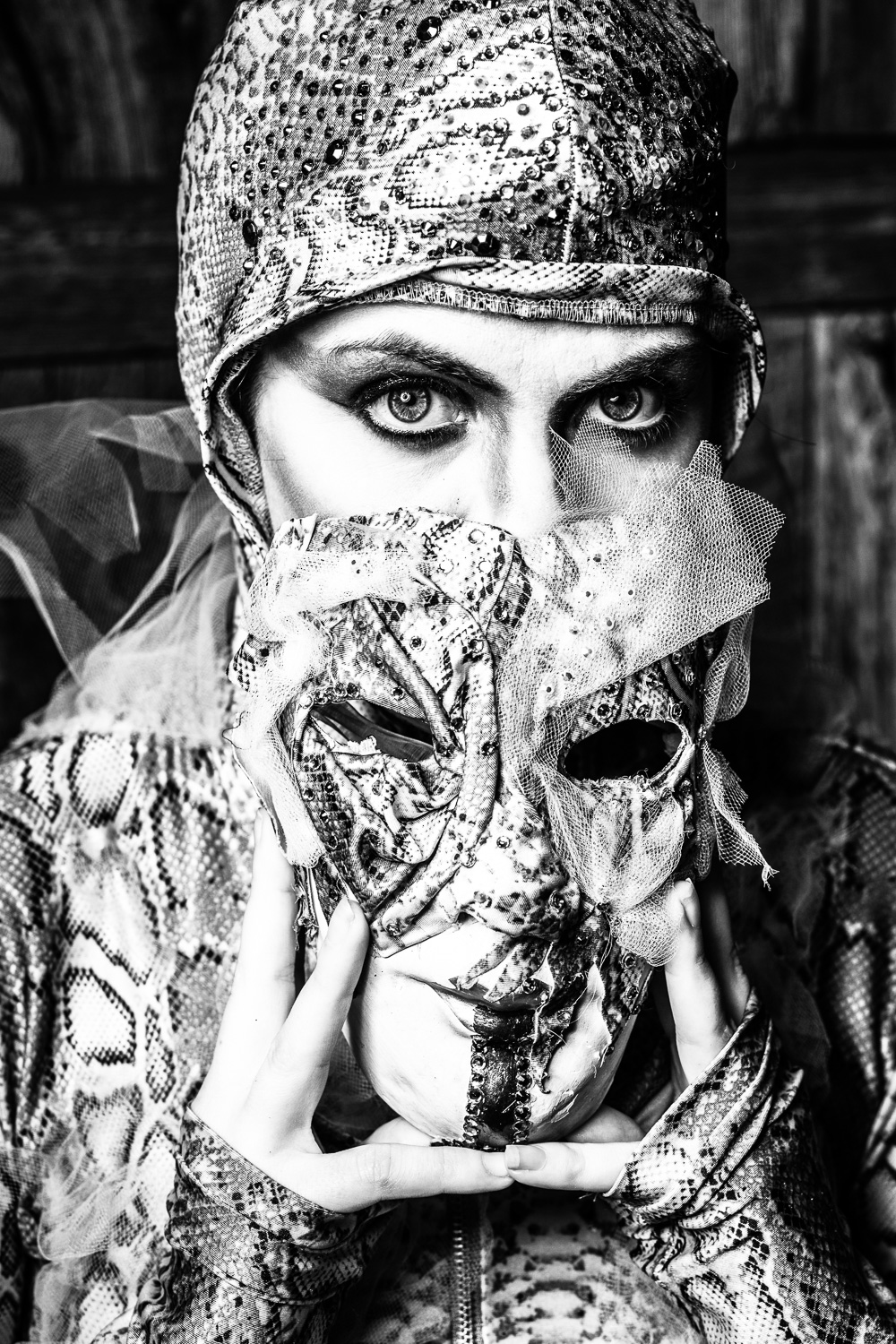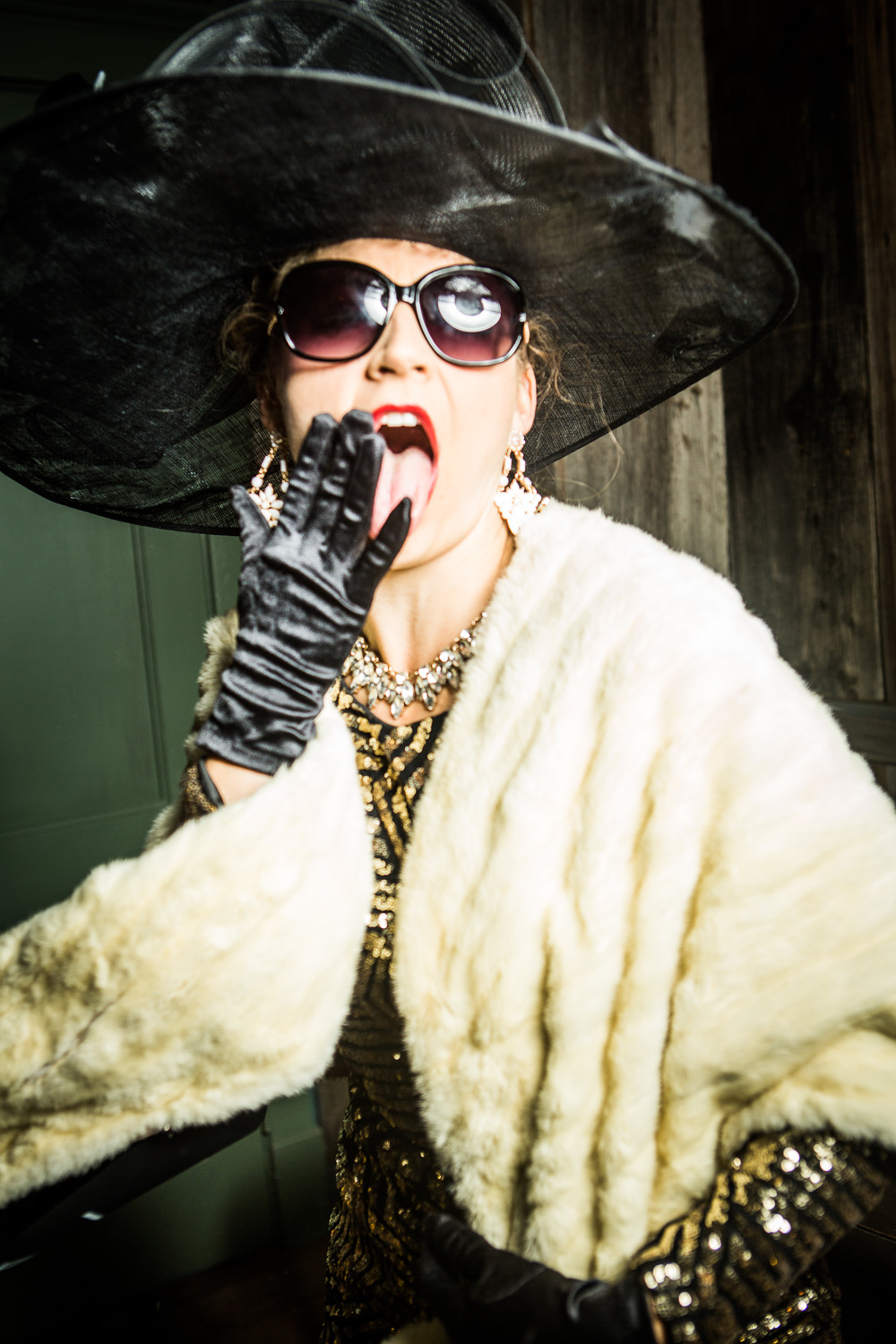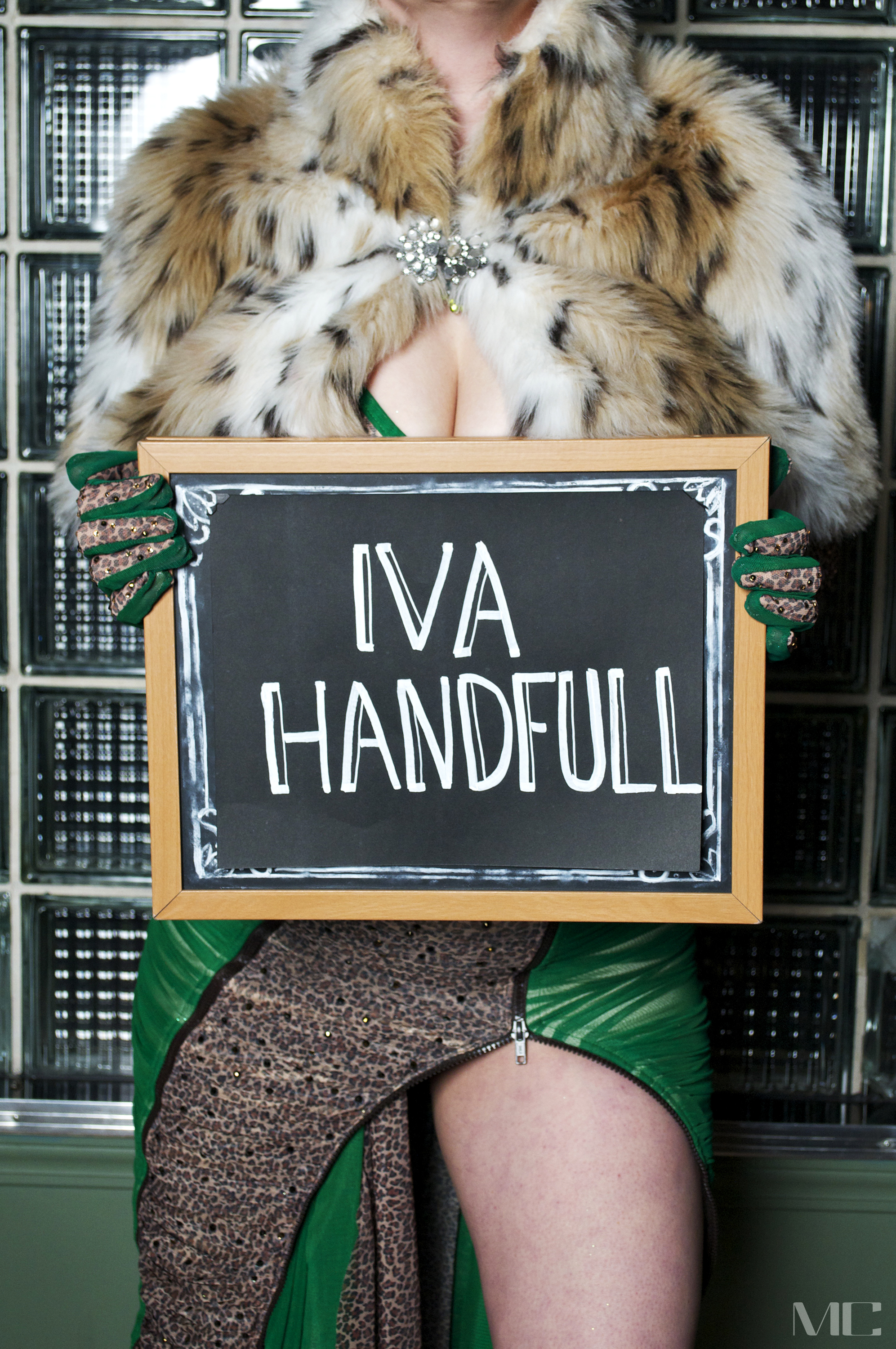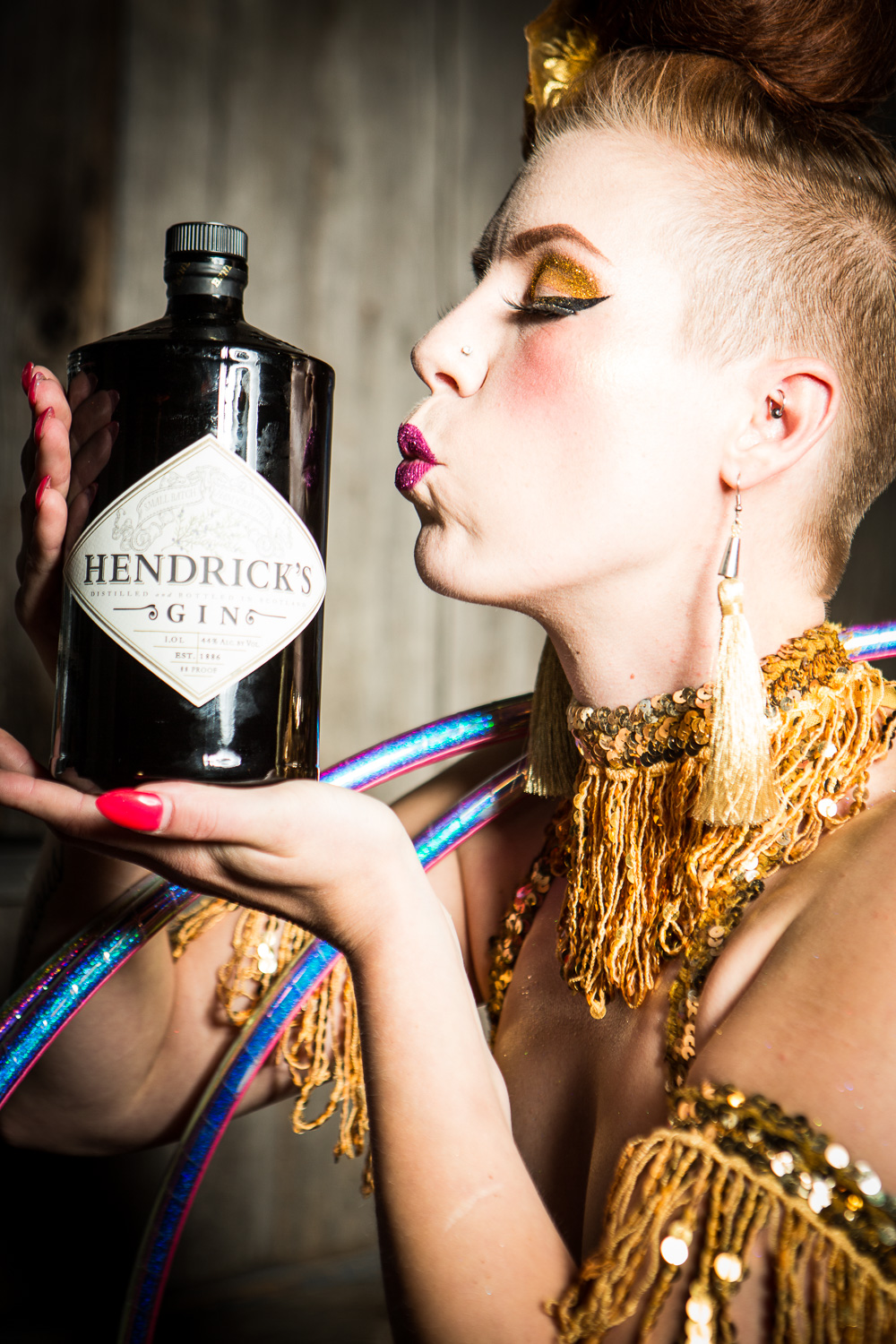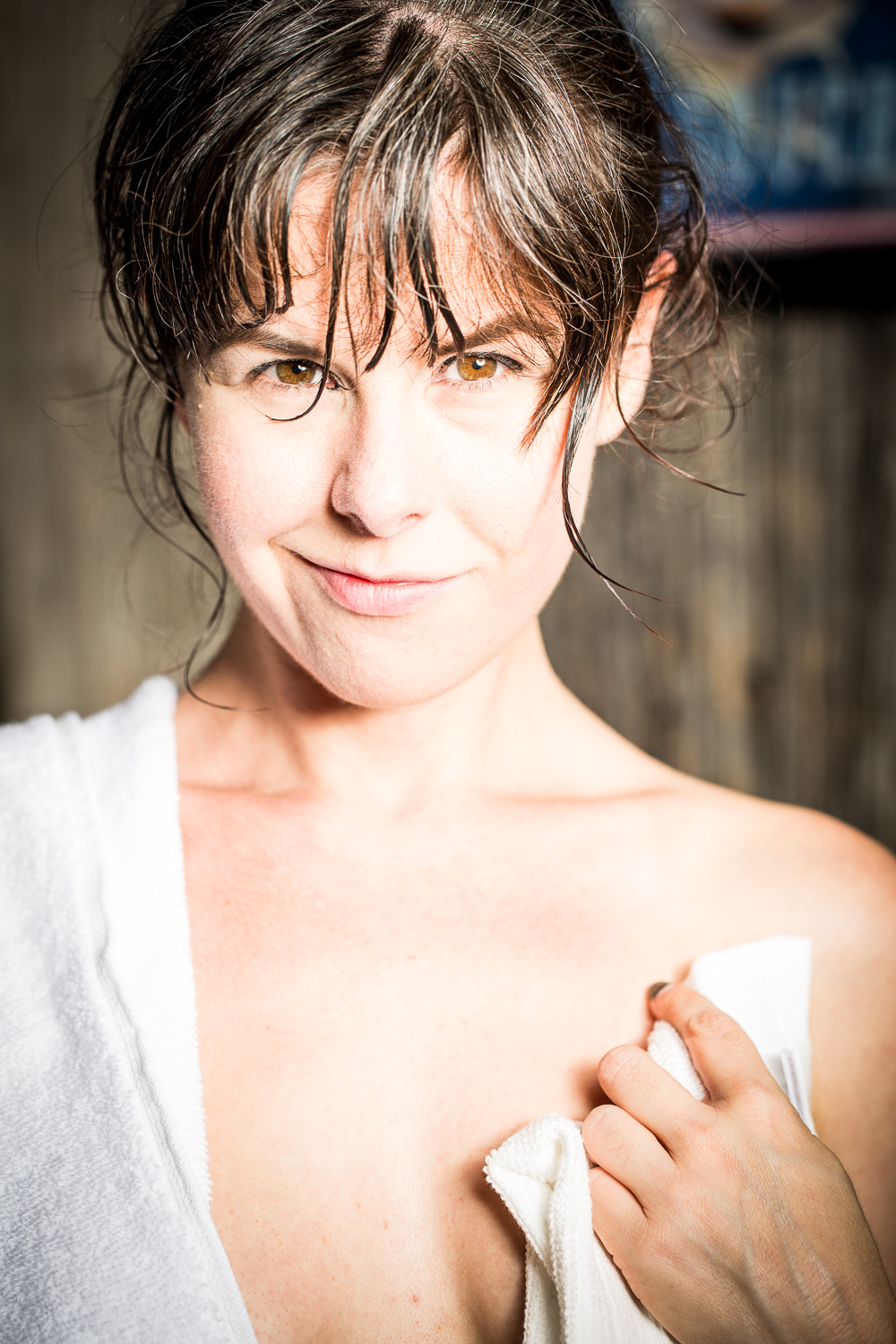One year ago today, I was getting ready for my first venture into producing, the "California Cabaret."
I can't say I remember that day leading up to the show as being particularly joyful. Between my anxious prayers to some sort of stripper god that people would attend a burlesque show at a Humboldt Park bar on a Tuesday night, there was that horrible little voice (strangely in my tone and register) that kept echoing in my head that I had no idea what I was doing, that I was going to look like a complete idiot, and maybe being a producer wasn't my bag, after all.
But I armed myself with the knowledge I had gained working with so many great producers over the years, hired four of the best dancers I knew, and told that voice to shove it.
Now a year later, the "California Cabaret" (now the Clipper Cabaret) was the first of 35 shows that I've produced, and it has inspired me to form my event production company, Feva Pitch Productions, earlier this year. Our last show at the California Clipper was our biggest event yet, featuring an out-of-town cast (Steel City Kitty tour) of seven in addition to nine "ring grrls" parodying Chicago performers (inspired by shows like Wasabassco's recent show in New York).
And because I'm one of those sentimental fools that loves rituals and self-reflection, I got to thinking about everything I've learned this past year of producing and how grateful I am for the opportunities I've had to become a better producer, performer, and human being. It's been an incredibly transformative experience.
And it's just the beginning. As my dance teacher Suhaila Salimpour used to affectionately tell her students, "if you've been dancing for less than ten years, you're still just a BABY dancer!" And with only one year under my belt, this newborn producer still has a long way to go and a lot to learn.
But I have learned just a thing or two:
1) If you want bookings, make it easy for someone to hire you.
You stand the best chance of being booked for a show if you make it as simple as possible for the producer to say "yes" by demonstrating that you're the best person for the job.
Which email would you answer first?
Performer A: "Hey, I'll be in town for August. Do you know of any shows happening? I don't have any videos but I could film a practice video if you want."
Performer B: "Hello, I'll be in town for August 1-30. I saw that you produce the Clipper Cabaret on Tuesdays and wanted to see if you were accepting bookings. I watched your show reel and I see you seem to feature neo-vintage acts - attached are three videos of my acts that I think would be a great fit. I've worked with Ava la Flava in the past if you're looking for a reference!"
Performer B, in my mind, has made it simple for me to say "yes" - I mean that quite literally, since I could just type out a quick "yes" and send (although Performer B might be a bit confused). They curated their footage for the show to the best of their ability, they have demonstrated some familiarity with the shows I produce, and they've attached a reference (which is always nice but not a requisite, in my mind. It's definitely not a golden ticket into a show).
With Performer A's email, we will need to go back and forth a few times to complete the booking inquiry - more time passes, the spots start to fill, and accidental communication drop-offs occur.
In this hypothetical scenario, Performer B was a peach and also sent this correspondence via email instead of a Facebook message. The rationale probably goes without saying - we've all wasted too many minutes of our precious lives scrolling through two months worth of Facebook messages, looking for that one specific reference, all the while slowly losing our sanity. You want your producer to have your contact information in an easy-to-find email for their benefit AND yours.
Videos are important. The producer needs to know things like the color/style of your costuming, music choice, aesthetic and concept so they can program you in a way that best showcases your abilities. No one wants to show up to a venue with giant feather fans and a giant headdress only to discover a tiny stage with 6' ceilings - videos help ensure that you're a good fit for the space. A producer can help clue you in for things to expect. In addition, the nuance of an act, how you move, and your level of professionalism cannot be communicated through words alone.
2) Collaborate with talented people that you trust.
One of the hardest things I've learned through producing is that I can't control everything. I have to actively fight my anxious, micromanaging tendencies during shows, and I would be lying if I said I don't still struggle with it.
It's easy to want to take over every task (to ensure that it's "done right"), but it's hard to be effective and do everything well when you're spread in too many different directions. The "I did it all myself!" mentality results in a quick pat on the back for the ol' ego, but it limits what you can create to the confines of your own mind. When you partner with trusted collaborators, you can accomplish an exponential amount more and imagineer some really awesome make-believe (that's technical industry-speak).
I still remember when the Clipper Cabaret's resident photographer Greg Inda approached me to ask if he could try some different things with some backstage shots. I told him that I trusted him and that he should run with whatever he thought would work best. Now, a year later, the backstage photoshoots and show photography have become an integral part of our show's branding. In addition, Greg's contributions have made the show have more value for artists, because they get a professional photoshoot with images they can use for self-promotion in addition to show photos.
3) Express gratitude genuinely and often.
I'm an emotional and demonstrative person by nature, but I think it's important to engage in a practice of expressing gratitude genuinely and often. I'm stressing the word "genuine" here for a reason - dolling out shallow compliments left and right is easy, but taking the time to genuinely express appreciation is difficult and nuanced. And people's BS-barometers are pretty well-tuned and can discern the difference, no matter how suave the delivery.
Often times the people doing the most for your show hear the words "thank you" the least. Stage managers, venue staff, even regular patrons of your events should know that you recognize their contributions and feel that they are valued. It really takes a village.
4) You're on the clock for longer than you're on the stage.
A great belly dancer named Mira Betz once said that you start your gig once you set foot in the venue and aren't done until you leave the premises.
She would stress that dancers should dress like you are going to a job (because you are), pack your things neatly in a suitcase (no one has ever looked classy hauling 13 plastic Target bags to a gig) and be mindful of the fact that people are still viewing you as your performance persona even after the performance ends. The night of a performance, you lose the anonymity of being "just another bar patron."
Your behavior is not only a reflection on you, but also on the show and the producer, and that continues for the entire time that you're at a venue. You may have been absolutely breathtaking onstage and gotten a standing ovation, but it's not the image that will be burned in the audience's minds if they see you vomiting in the bathroom later in the evening. And venues are more inclined to communicate critique as opposed to praise.
5) Get organized.
Develop your strategies for staying organized now, and cultivate a reputation for being on top of your sh*t. Because that is just as important as how well you perform. Being consistently unreliable is a dealbreaker, regardless of your talent.
When I first started dancing, I was terrible about getting music in on time (and I still slip up now and then). However, I got in the habit of saving all my songs for my acts in a separate gmail folder. The mp3 files are attached to an email that has all my tech information listed - entrances/exits, music notes, set-up/teardown, lighting preferences, etc. with the song title in the subject line. That way, it's easy to locate and shoot off quickly, especially when I'm on the road. When you're organized, you can respond quicker and be more consistently reliable - and more desirable to book as a result (the stripper Gods smile down kindly upon those who send their music in on time and communicate needs in advance).
When I started producing, I immediately established systems early on to stay organized. I opened a business account to keep finances separate, I keep all setlists for each show as separate sheets in one Excel workbook, and keep meticulous accounting records for payouts. It takes extra time, but it the amount of times it's come in handy have far outweighed the effort.
If you're a producer, you're like a goalie in soccer. If you drop the ball, there's no one else to cover you - you're the last defense before the net. Protect yourself, because the only person really looking out for you is... you.
6) Be prepared for ebbs and flows.
There's never really any time to rest on your laurels as a producer. Even when you're experiencing success, there's a very real possibility that your show could be canceled at any time. An entertainment budget is always a quick and easy item to eliminate from a venue's budget, and sometimes you draw the short straw regardless of the effort you've put in and the product you've created.
That may sound like a very depressing viewpoint to take, but it has allowed me to try to keep pushing myself with every show I produce to make my product better and better - and, to reiterate a point I made earlier, make it easy for the venue to say "Yes, we want to see this show continue because it has value to us."
How I feel about producing varies show to show, as well. Some shows almost seem to spring up like one of those tents that you throw in the air that lands fully assembled; other shows feel like I'm trying to herd a bunch of hydrophobic cats across a puddle (maybe it's just because it's late at night and I'm tired, but these analogies just make sense to me).
Producing can be emotionally and physically taxing, and it's not always enjoyable. You are the enforcer, the first to arrive and last to leave, the parent, the time keeper. And that's just the day of - it doesn't take into account the marketing, music editing, graphic design, accounting, booking communications, and scouting that the role encompasses.
Several times over the past year, I've had to fight to separate my feelings of self-worth from the status of my projects. Producing can come with moments of intense empowerment to crushing reminders that there are other factors and people that control the fate of your show.
But despite it's ups and downs, producing has been one of the best things I've ever done for myself. Producing has allowed me to connect with over 75 artists from all over the world, and get a front-row seat and backstage pass to some of my favorite burlesque artists of all time. Producing has enabled me to unlock a completely different form of creativity, which has revolutionized how I approach my personal practice as well. I've become a better communicator and I've had many honest conversations with people that encourage me to be a better producer and human.
I stand by my response to the negative little voice that whispered "you can't," just one short year ago: Shove it. I'm too busy to listen to that shit.
Happy Produce-aversary.


